Hello all, I am back from my hiatus as I moved to Ohio. Now that I am settled, enjoying the weather in the southern part of the state, I will be able to post regularly. Here is an overdue interview with ASM’s own Michael J. Sullivan for you aspiring writers and independent publishers to glean truths from.
Cedar Sanderson for Amazing Stories Magazine: Why do you write?
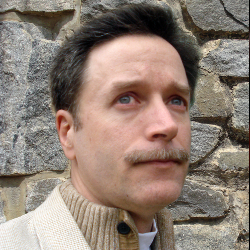 Michael J. Sullivan: Writing is by far my favorite pastime. I wake each morning completely enthralled with the fact that I get to do what I love, and I’m amazed that I get paid for doing so. I keep thinking one of these days I’ll wake up and find out this has all been a dream, but for now I’m just enjoying the ride. I’d write even if I never made any money at it…but because it does pay the bills I don’t have to worry about those pesky “day jobs” that would keep me away from the keyboard.
Michael J. Sullivan: Writing is by far my favorite pastime. I wake each morning completely enthralled with the fact that I get to do what I love, and I’m amazed that I get paid for doing so. I keep thinking one of these days I’ll wake up and find out this has all been a dream, but for now I’m just enjoying the ride. I’d write even if I never made any money at it…but because it does pay the bills I don’t have to worry about those pesky “day jobs” that would keep me away from the keyboard.
ASM: Why did you decide to self-publish?
MJS: I actually didn’t decide…it was a matter of necessity. Back when we were querying (and getting nowhere) my wife investigated what it would take to self-publish (this was before ebooks) and so we had a pretty good handle on what it would take. We actually were moving in that direction when a small press put forth an offer. They published the first book, and were in the process of publishing the second but March came and we hadn’t seen the printer proofs. This was a red flag as the book was scheduled to be released in April. As it turned out, they didn’t have the money for the press run so the rights reverted to us. We already had book clubs and book signings arrange for April so the only way to get the books out in time was to self-publish. Once we did that for book #2 we just kept going with books #3 – #5, and also re-published #1 once it sold out its print run because it reverted.
ASM: Where did you publish? Amazon, Smashwords, B&N? What made you choose the platform(s) you did use?
MJS: All of the above. I think the more distribution the better. The bulk of our sales came from Amazon but even so, I never wanted to use their “Select” program which requires exclusivity. My basic approach was to create print books using CreateSpace (although in the early days I also used Lightning Source). For ebooks I did direct uploading to Amazon, B&N, and Kobo. To get into the ibookstore I used Smashwords to distribute to them and a few of the smaller players like Diesel.
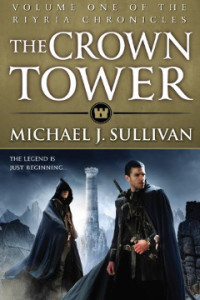 ASM: How did you format your manuscript?
ASM: How did you format your manuscript?
MJS: For the print books I use InDesign, which is expensive and hard to use for those who are not familiar with it. I have a background in graphic design so it was easy for me and I already owned the software.
For ebooks…I start with the Word document and do some global search and replaces to surround paragraphs with <p></p>, bolded items with <b></b>, and italics with <i></i>. I then copy and paste this into notepad and add the table of contents and any images such as maps. This very “simple” .html acts as the base and crates very compact ebooks. Many people do a “Save as” from word but that brings a lot of formatting code that bloats the size of the file.
Once I have that .html I then use calibre (free software) to generate the .mobi, .epub, and other formats. I’m sure there are easier/faster ways of doing this – but it’s what I know and trust so it’s the way for me until I have some cycles to investigate things like generating ebooks directly from Scrivner or InDesign.
ASM: How has it worked in terms of sales (I do not need specifics)?
MJS: In the early days (before ebooks) sales were very slow. Only 30 – 50 books a month. As I added more titles (I released one every six months) and as ebooks came into their own, my sales really started to pick up.
· By April 2010 I had 4 books out and was selling about 1,000 ebooks and 50 – 100 print books each month.
· In October 2010, I released my fifth book and the sales for that month were 2,600.
· The Christmas season of 2010 was very good to me as November brought 9,500 sales, December 10,500, January 11,500, and February 9,000 sales.
· In March – August sales fell to around 3,000 – 5,000. This coincided with the announcement that Orbit was picking up the series (their pre-order pages were up) and we were actively pushing sales there. Because of this, it’s hard to know whether the decrease in sales was because Christmas was over, the books had had their moment in the sun, or if people were buying the Orbit copies instead. At the end of August we had to remove our self-published versions as Orbit was doing live with their copies in November.
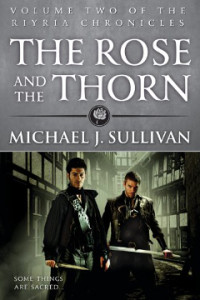 ASM: Would you do it again? Or would you prefer to publish through traditional routes?
ASM: Would you do it again? Or would you prefer to publish through traditional routes?
MJS: The series I started self-publishing has later sold to one of the big five (Orbit is the fantasy imprint of Hachette). Starting off self-publishing got me a MUCH better deal than if I had started traditional. In my genre debut authors typically receive a $5,000 – $10,000 advance and I got a six-figure 3-book deal. Also I was able to negotiate my contract and get concessions that a new author really doesn’t have the leverage to do. My sales in self-publishing were such that I didn’t “need” to sell those rights, and so I could stick to my guns more about a few clauses that I took particular exception to.
I have three books coming out soon. Two of them (The Crown Tower (Aug 2013) and The Rose and the Thorn (Sep2013) will be traditionally published. But my science fiction novel, Hollow World will be self-published in January 2014. So I’m adopting a “hybrid” model where I choose the path on a case-by-case basis.
ASM: Do you call yourself self-published, or an independent publisher? And why?
MJS: Oh I’m all over the place on that one. I know that many in the industry object to self-published authors calling themselves “indies” because that term is already used by small presses that aren’t part of the big five. I can understand why an author would want to distance themselves from the stigma of self-publishing and I can also see why someone published through a small press would resent them using the term (as it is technically incorrect). Bottom line, I think the boat has sailed on this one. The English language changes all the time and “indie” and “self” are basically interchangeable – particularly for those people not in the industry who don’t even know there is such a thing as an “independent press.” In any case, I’ve been known to use both terms in the same piece of writing (blog post, comment, etc.) I just don’t get that concerned about it.





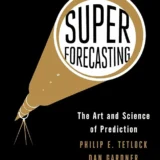
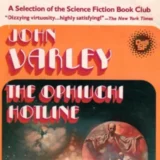
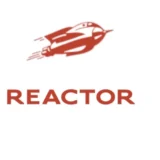

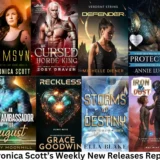
You’re right about that, R.K. I jumped right on this interview, not just because Micheal is a wellspring of information, but he’s been committed to helping others navigate their careers. You asked some great questions Cedar. Very informative interview.
Nice interview. I feel like I have to archive everything Michael says as I trudge forward into my own publishing experience. Refreshing to listen to a successful writer, who is not entrenched in the “establishment”.